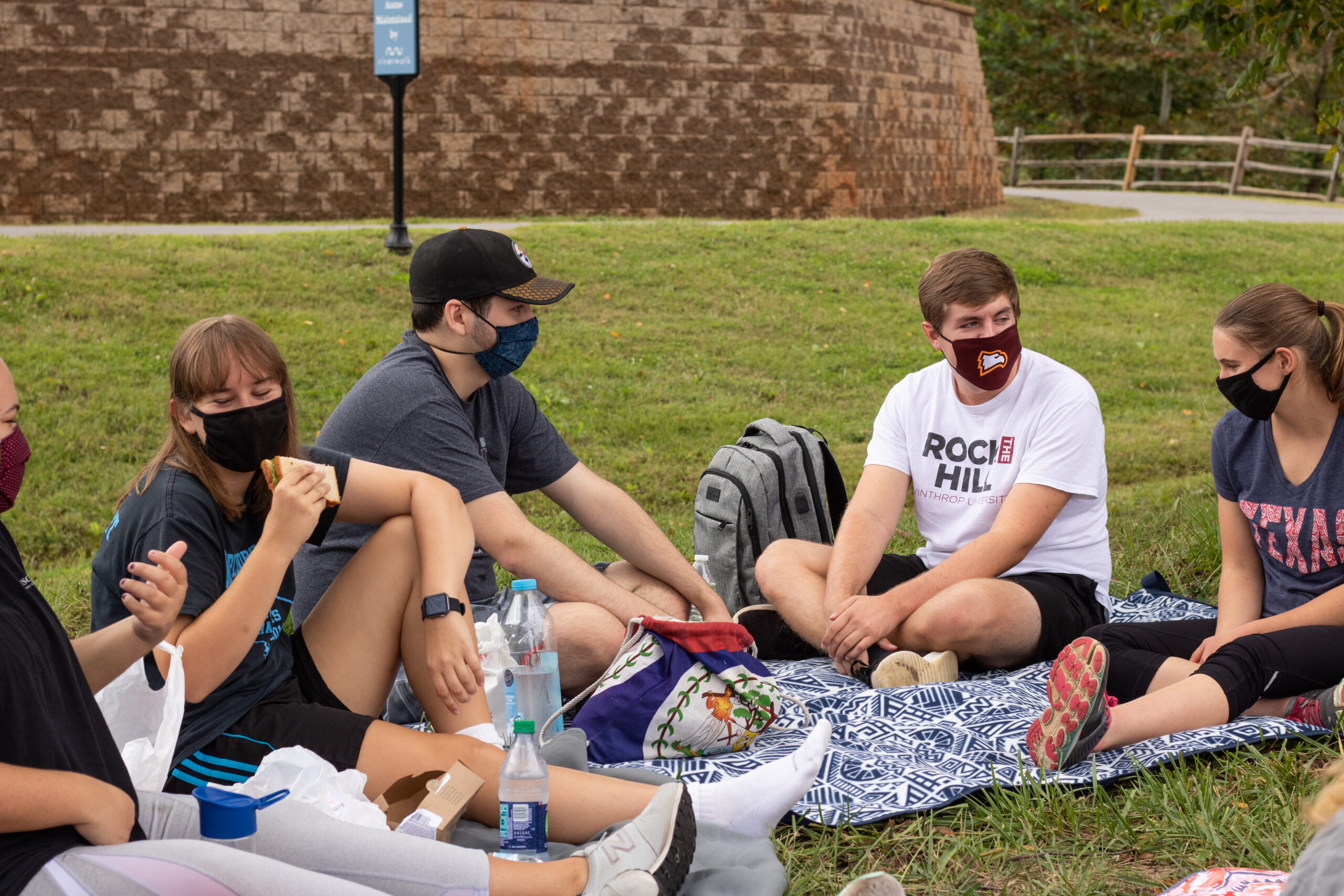Mask mandates remain in effect around the country to aid in the fight against COVID-19, and college campuses are no exception. But what kind of pressures do students feel about wearing masks and interacting with others?
Winthrop University’s COVID-19 safety guidelines state, “Face Coverings are required in all campus buildings, including classrooms and common areas.”
Similar guidelines have also been implemented by both Clemson and the University of South Carolina. According to the Centers for Disease Control and Prevention, masks help to prevent respiratory droplets being released into the air or getting onto others. They also advise that masks should be worn in areas social distancing is difficult to maintain.
For freshman early childhood education major Mckenzy Brooks, getting adjusted to wearing a mask was a challenge.
“At first it was a little weird to get used to,” Brooks said, “but now I’m used to it, and it’s just second nature. I have one hung up by my door, so I don’t forget.”
Mask comfortability aside, has COVID-19 changed how friends interact?
“With my group of friends, we’ve been around each other for weeks now, so we feel comfortable taking them off around each other,” Brooks said. “If we’re meeting up on campus, of course we’ll have them on. But if we’re going somewhere, once we get to the car, we take them off.”
For students like Josiah Johnson, a freshman music education major who is completing this semester from home, concerns over spreading COVID-19 have also had an impact on how he associates with people.
“If I’m out in public, in a big area, I’d feel safer if everyone would wear a mask,” Johnson said. “With my friend group, if someone has been exposed, they usually don’t come to our meetups. We’ve had a couple people with COVID scares, and they had to take it easy before we hung out again.”
However, Johnson did not feel the same concerns regarding family members. “When I’m with family–as opposed to strangers–I get the feeling I’ll be fine. So, I take it off. Because they’re family, and we have the same blood, I feel alright about it,”
Johnson said.
So when exactly should people be masking up? With no definite answer to this question, instances of ‘mask peer pressure’ are likely to occur in social settings, for better or worse.
Whether it be through university safety guidelines, or signs posted around campus, there is a clear atmosphere at Winthrop to engage in social distancing and mask wearing.
“I think they’re just trying to encourage you to wear one,” Brooks said, “but I wouldn’t say I feel pressured.”
Off campus, though, Johnson feels there is a definite pressure to participate in wearing a mask.
“Obviously I think there is pressure because it limits spread of virus. But, if it helps decrease the spread, I think we need to wear it,” Johnson said. “I’m not having a problem with it personally, but I think a lot of people are.”
Both Brooks and Johnson agreed that when it comes to removing one’s mask around others, consent is key.
Johnson said that “I think… in a group, if someone is taking their mask off, everyone should consent. If one person, or multiple, are taking it off, there should be a conversation to see if everyone is ok with it. If people aren’t ok with it, they should all leave the masks on.”
World Health Organization and CDC officials cite wearing a mask as an essential way to prevent the spread of COVID-19, and it is always important to have a conversation with those close by before removing your own.
Photo by Olivia Esselman.




